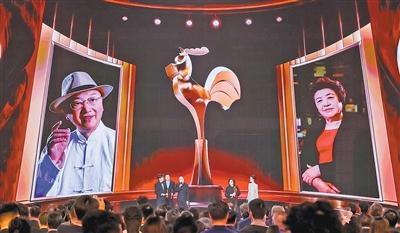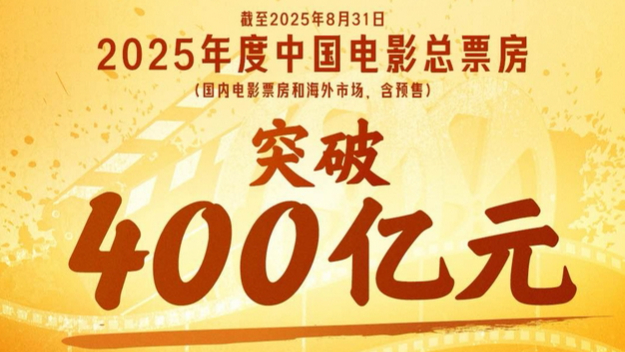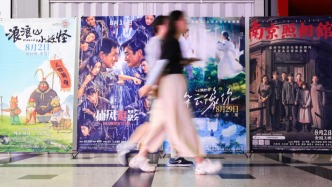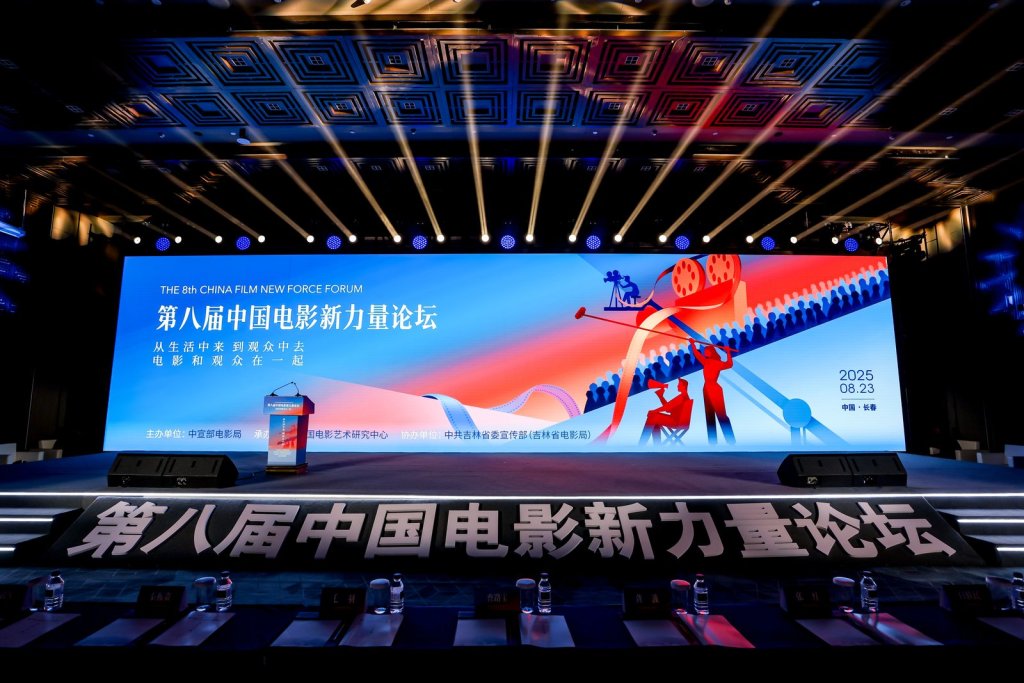
On August 23, the 8th China Film New Force Forum was held in Changchun International Film Capital. The forum aimed to bring together emerging filmmakers, industry representatives, and local film managers to discuss in depth the changing trends and historical opportunities in the film industry, build industry consensus, and prepare the minds and spirits for the high-quality development of the Chinese film industry and better serve the people.

Aerial shot of the forum
Since its release on August 16th, this year's summer blockbuster crime thriller "Chasing Shadows" has not only steadily climbed to a Douban score of 8.1, maintaining its top spot among domestic films of the same genre for the past decade, but has also seen a surge in box office revenue, topping the daily box office for several consecutive days. This not only helped kung fu superstar Jackie Chan, who had been plagued by poor reviews in recent years, break his "bad movie curse," but also helped the nearly 70-year-old actor Tony Leung Ka-fai gain a new identity as a "action star." Furthermore, the film has brought director Yang Zi, who worked behind the scenes, back to the spotlight after his breakthrough performance ten years ago with "The Shouting Mountain," which he wrote and directed.

During the forum's first round of speeches on the morning of the 23rd, Yang Zi, titled "Saving the Anchor of Humanity in the Technological Tide," discussed his perspectives on the inheritance and innovation of genre films. "Today, I'd like to share some of my humble thoughts on how, in this era of technological advancement, genre films can 'protect the warmth of reality.'" Through my new film, Chasing Shadows, Yang Zi shared his thoughts on how, in this era of rapid technological advancement, genre films can 'protect the warmth of reality.'"
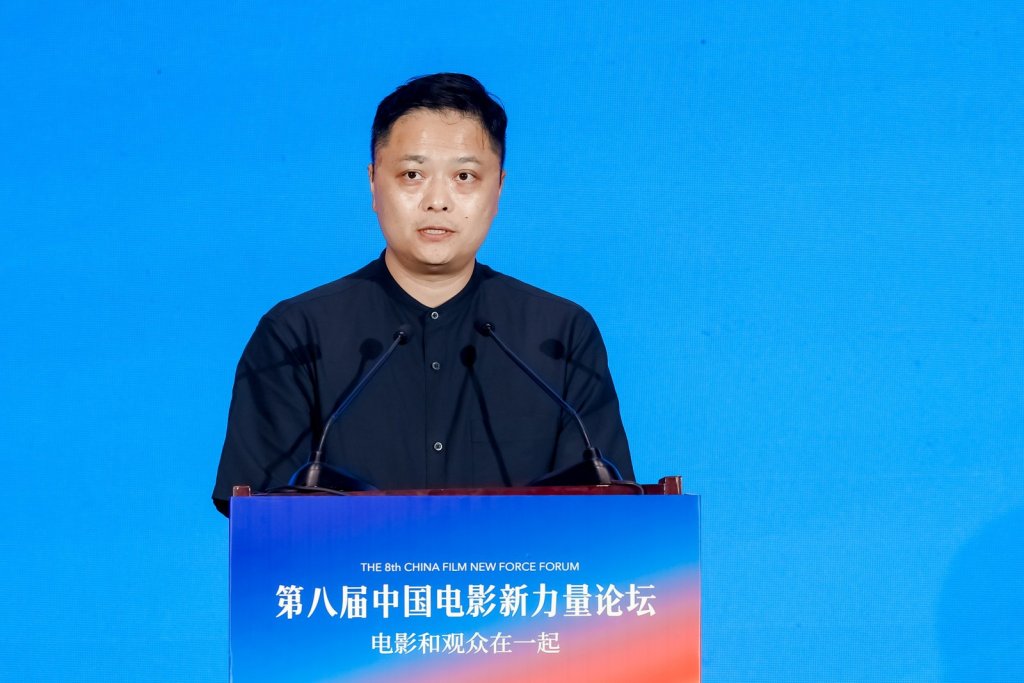
Yang Zi, screenwriter and director of "Chasing the Wind and Shadows"
Yang Zi advocated for "inheritance" as the first priority, cultivating new skills within the soil of traditional craftsmanship. "'Chasing Shadows' is an adaptation of the 17-year-old classic crime drama 'Tracking.' We chose it not for simple reproduction, but because we see a significant conflict in our time: as AI, Sky Eye systems, and facial recognition become indispensable mainstream technologies in criminal investigations, have traditional methods that rely on human intuition and experience lost their value? Our answer is no."

Movie stills
"It's precisely this 'outdatedness' that creates the film's original dramatic tension. The film retains some of the original's core settings while reinterpreting the themes, emotions, and techniques of the original story. We designed Jackie Chan to play Huang Dezhong, a retired police officer who has mastered the old skills and has returned to fight a criminal gang that can counter them with technology. This is not nostalgia, but a tribute to professionalism."

Movie stills
"This legacy also happens off-screen. On the set, Jackie Chan's decades of dedication, his hands-on approach to every move, his meticulous attention to detail and repetitive polishing of every line, are in themselves a masterclass for all of us young filmmakers. He's not just acting; he's emulating us and all future generations of filmmakers with his own actions, teaching us and all future generations the dignity of a filmmaker and the ingenuity of cinema."

Movie stills
"The second consideration is innovation. Infusing genre expression with contemporary humanistic thinking." Yang Zi believes that genre films are just the shell, while the humanistic core is the soul. "When portraying the villain Fu Longsheng, played by Tony Leung Ka Fai, we took great pains to avoid stereotyping him. He is not a simple 'villain', but a tragic figure twisted by extreme circumstances. He has a unique emotional structure and a sense of contradiction. He adopts an orphan and longs for family affection, but is unable to love properly, ultimately leading to the tragic ending of 'son killing father, father killing son.'"
"We wanted to create a truly flesh-and-blood villain, worthy of Chinese cinema. His charm lies not in his villainy but in his complexity, exploring the darker corners of human nature. This is a touch of innovation we strive to achieve within the existing framework of the crime thriller genre. At the same time, in terms of action design, we adhered to the concept of 'action equals dialogue.' The final life-and-death struggle between Jackie Chan and Ka Fai in the teahouse is characterized by extremely concise dialogue. In this moment, all the emotions between these two 'old hands', the obsession with protection, the madness of revenge, and the sadness of the times, are integrated into every move and every gesture."

Movie stills
At the end of his speech, Yang Zi discussed his expectations and calls for new forces. "Technology surges forward, with AI-powered graphics and virtual production advancing with each passing day. However, we must not get lost in the spectacle of technology. Traditional filmmaking techniques should be the foundation upon which technology is built. The two complement each other and are the source of new forces. No matter how advanced the algorithm, it cannot capture the vibrant atmosphere of a vegetable market, and no matter how precise the model, it cannot simulate the subtleties of human nature. Ultimately, our inspiration must come from the real land beneath our feet."
He also reiterated the importance of cherishing the spirit of craftsmanship. "Whether it's the actors' performances or the choreography of the action director, it's the relentless pursuit of perfection and hard work that creates a film's most valuable quality. The future of Chinese-language cinema lies in our ability to create works that not only meet the standards of international genre films but are also deeply rooted in our own culture. What will the future of Chinese cinema look like? The answer lies not elsewhere but in our stories, scripts, and shots."
